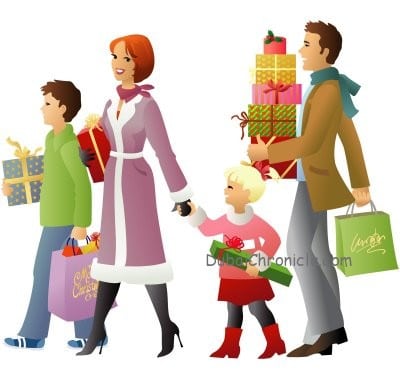
Holiday shopping often resembles a marathon. People prepare for it for weeks and they even come up with various strategies. Shopping for Christmas gifts is one crazy activity. Yet it can also be fun and entertaining. Some times it is even frustrating. However, all the negative feelings quickly disappear when we see that our present brings a smile on someone’s face. After all, Christmas is the Season of Giving. The shopping and the promotions are not the most important part of it and that is something we often forget.
Another important thing we forget, or maybe don’t even realize, is that the big holiday shopping impacts the environment in a negative way.
In our search for the perfect Christmas gift, we travel from one store to another. Many people even go to other cities, hoping to find more interesting products or a wider variety of them. That burns lots of gas and it pollutes the air. Last year, scientist discovered that over the holiday season, gas levels in the atmosphere increased with nearly 20%. To avoid that, go to a shopping mall or buy gifts online.
Now let’s go inside the shops. Christmas gifts traditionally are decorated with purposely designed and not useful for anything else wrappings. Some of the materials used to make the colorful wrapping or package take years to decompose. It is true that the present looks prettier with them, but they are a serious scourge on nature. What you can do is to choose wrappings and packages that are not so excessive or are made of eco-friendly materials.
At Christmas, when everyone opens their gifts, the waste from the wrappings and the boxes is often thrown together with the rest of your home refuse. A good idea is to separate them into different bins and give them for recycling. Maybe next year they would be wrapped around a new present!
It is interesting and a bit disturbing to see how such a holiday can have negative effect on nature. It will be hard to completely eliminate these practices. However, we can at least reduce them… if we try.





































